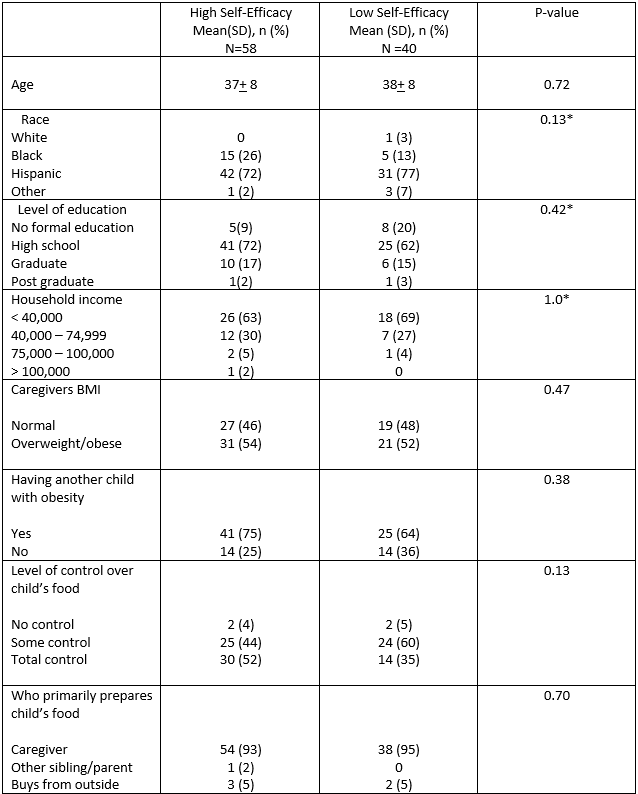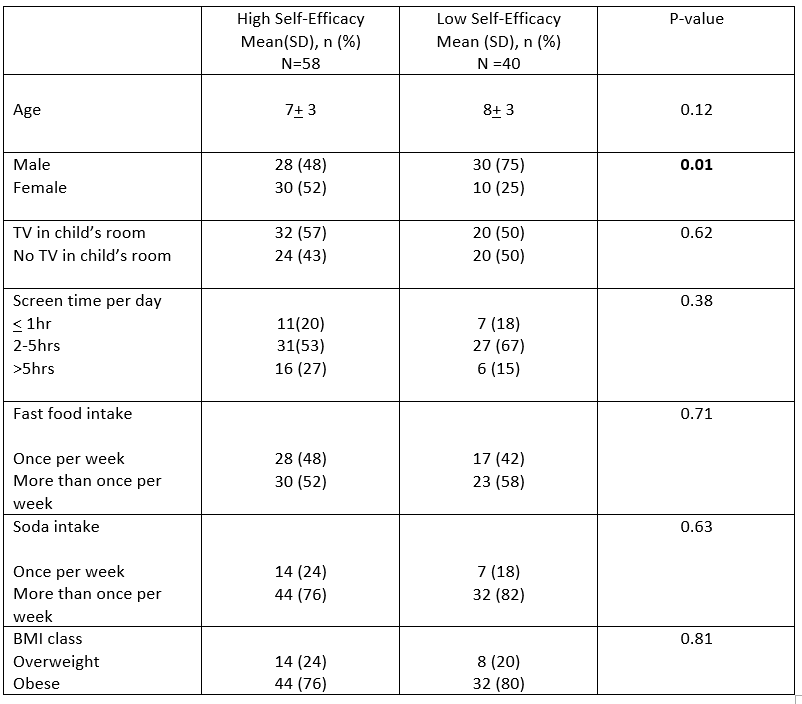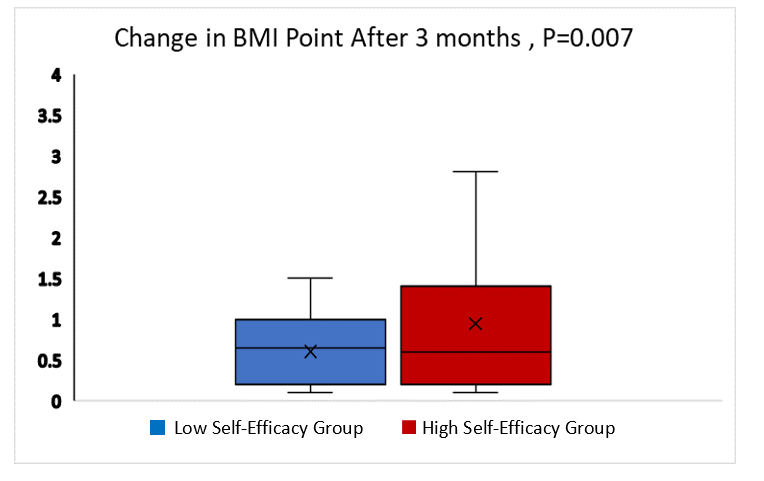Obesity
Session: Obesity 2
608 - Caregiver’s Self-Efficacy in Making Lifestyle Changes and BMI Reduction in Their Children 2 – 12 Years of Age
Monday, May 6, 2024
9:30 AM - 11:30 AM ET
Poster Number: 608
Publication Number: 608.3304
Publication Number: 608.3304

Jeffery O. Boateng, MD (he/him/his)
2nd Year Resident
SBH Health System
Bronx, New York, United States
Presenting Author(s)
Background: Self-efficacy refers to an individual’s confidence about making behavioral changes. Lifestyle modifications remain the foundation for obesity management in children. Motivational interviewing has been used to increase self-efficacy and facilitate weight loss for adults with obesity. However, in young children whose lifestyle depends significantly on their caregivers, very little is known about the impact of the caregiver’s self-efficacy on BMI reduction in their children
Objective: To determine if higher self-efficacy levels among caregivers is associated with child BMI reduction after 3 months
Design/Methods: Caregivers of children between the ages of 2-12 years with BMI > 85%ile were enrolled. All caregivers received routine weight management counseling during every visit. On the day of enrollment, a validated self-efficacy tool was used to measure caregiver confidence in making relevant lifestyle modifications for their child. Self-efficacy was classified as high or low based on the cumulative tool score. Caregiver readiness to make lifestyle changes was similarly assessed using a validated scale and classified as “ready” or “not ready”. Child BMI was assessed at the enrollment visit, and again 3 months later.
Results: A total of 160 caregivers were enrolled and 61% returned for second visit. Participants identified as Hispanic (75%), Black (20%), and others (5%). The average age of caregivers and children was 37+8yrs and 7+4yrs respectively. Among those who returned for second visit, 59% were found to have high self-efficacy scores. Having higher self-efficacy was significantly associated with readiness to make dietary changes (OR=6.3, CI 2.5,17.1). After 3-months, 58% of the high self-efficacy group had a decrease in BMI as compared to 55% of the low self-efficacy group. This difference was not statistically significant (OR=1.1, CI 0.5,2.5). However, among the children with reduced BMI, high caregiver self-efficacy was associated with a significantly greater BMI reduction (mean BMI difference = 0.43 CI 0.12, 0.74)
Conclusion(s): High self-efficacy is associated with caregiver’s readiness to make dietary changes. Both groups had reduced BMI likely related to routine counseling, however those with higher self-efficacy showed larger reduction in BMI. This study emphasizes the need for pediatricians to do a more targeted weight loss counseling and access the caregiver's confidence in making the changes with the aim of increasing their self-efficacy so as to help their children maintain healthy BMI.



